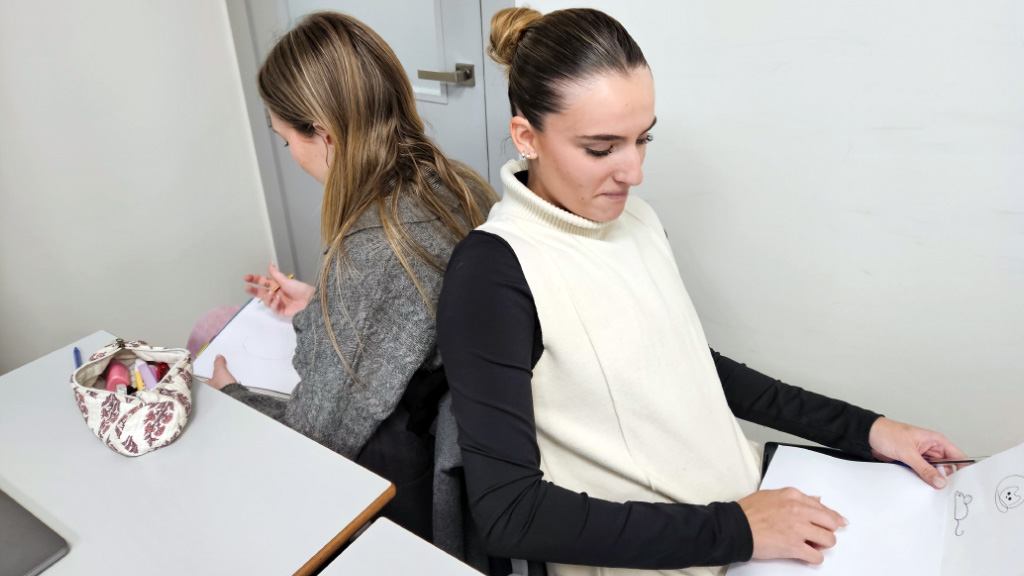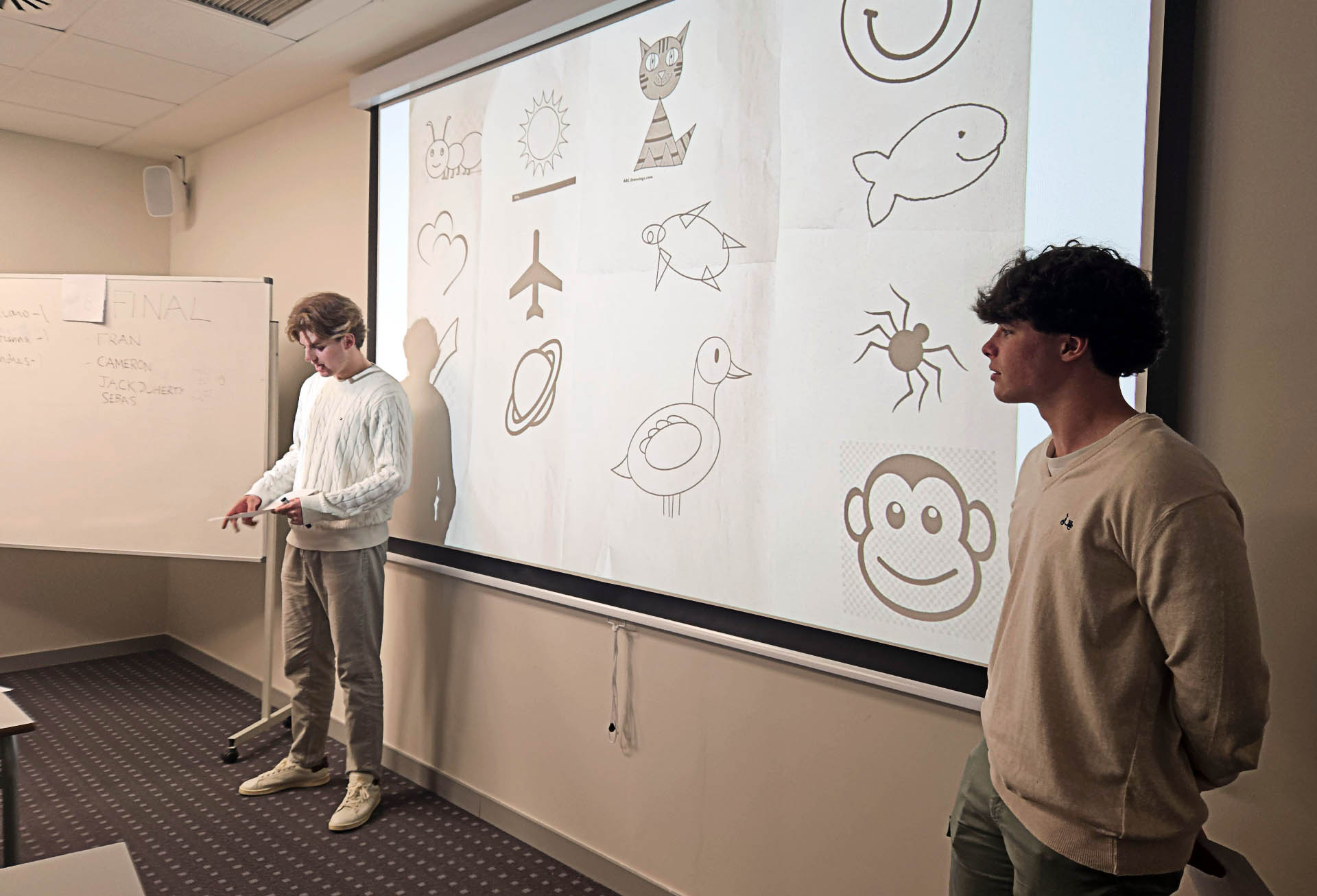Have you ever had a misunderstanding in your workplace, educational setting, or family environment that only became worse over time? This phenomenon, which is more common than we think, is called “The Broken Telephone,” and to avoid its proliferation, companies develop strategies that encourage “active listening” at all levels.
At CIS University we are committed to integrating educational practices that train our students with highly demanded workplace skills. To that end, we teach students to improve and increase their communication skills through active listening.

Learning to listen… again
During a test, students were grouped in pairs in order to discover the nuances and benefits of full communication. Sitting back to back, so that they could not see each other, each student had to describe an illustration to the other without visual aids, just by answering questions:
- “If it were a clock, what time would be shown?”
- Is it thinly drawn, thickly drawn, or is it shaded in?
- ¿Does it have human features such as eyes or ears?
Simultaneously, the student makes a portrait of the figure he/she cannot see, using the information and details obtained from the responses. At the end of the activity, the original figure and the “blind illustration” are compared to check the level of similarity and the degree of effective communication between the two individuals.
This exercise had two clear objectives:
Encouraging active listening: By participating in the exercise, students experienced the fundamental need for attentive listening to improve the results of any teamwork firsthand: “Without communication, there can be no verifiable results.”
Promote a culture of inquiry: In other words, to encourage students to “lose the fear of asking questions” through seeking answers to those details or “gaps” that need to be clarified, which creates a culture of commitment to excellence since having doubts can impede overall progress.
This challenge underscored the importance of sending clear messages, listening carefully and asking pertinent clarifying questions to ensure accurate understanding. All of these elements, highly valued in professional settings, are hallmarks of what is considered organic, healthy, and fluid communication.
At CIS University, by prioritizing experiential and immersive learning activities, we recognize that continuous innovation, not only through a more traditional educational approach, is really the key to preparing our students for success in a demanding and rapidly evolving work environment.

